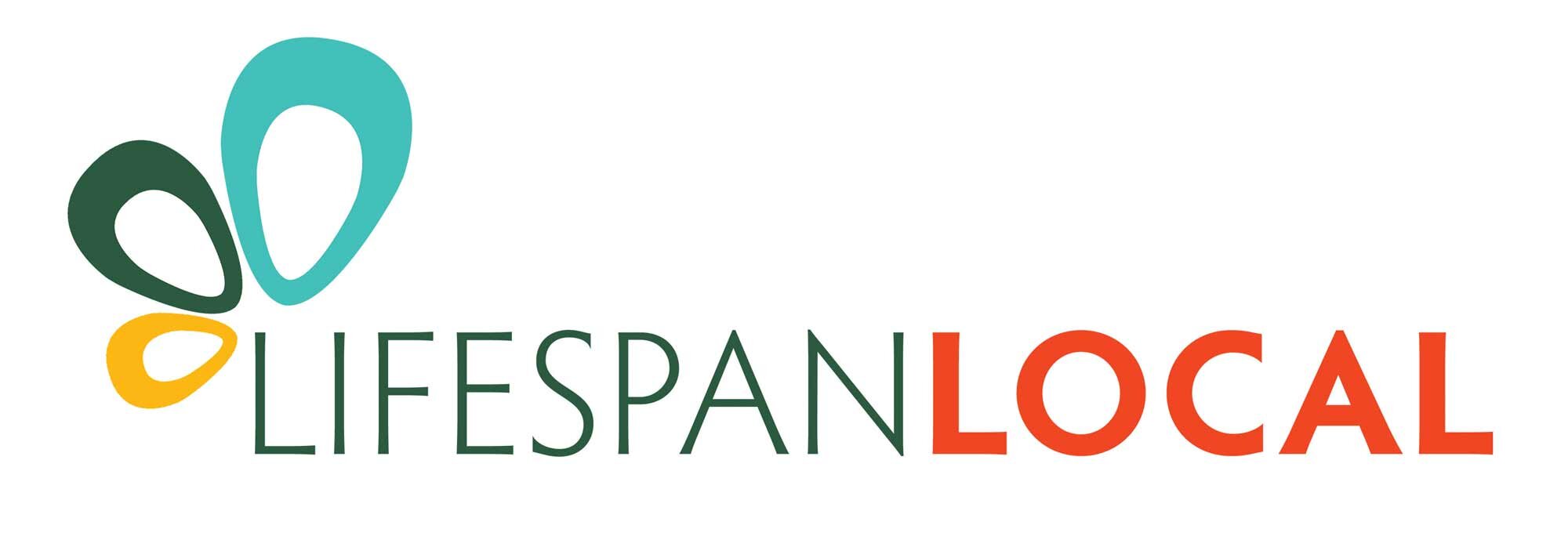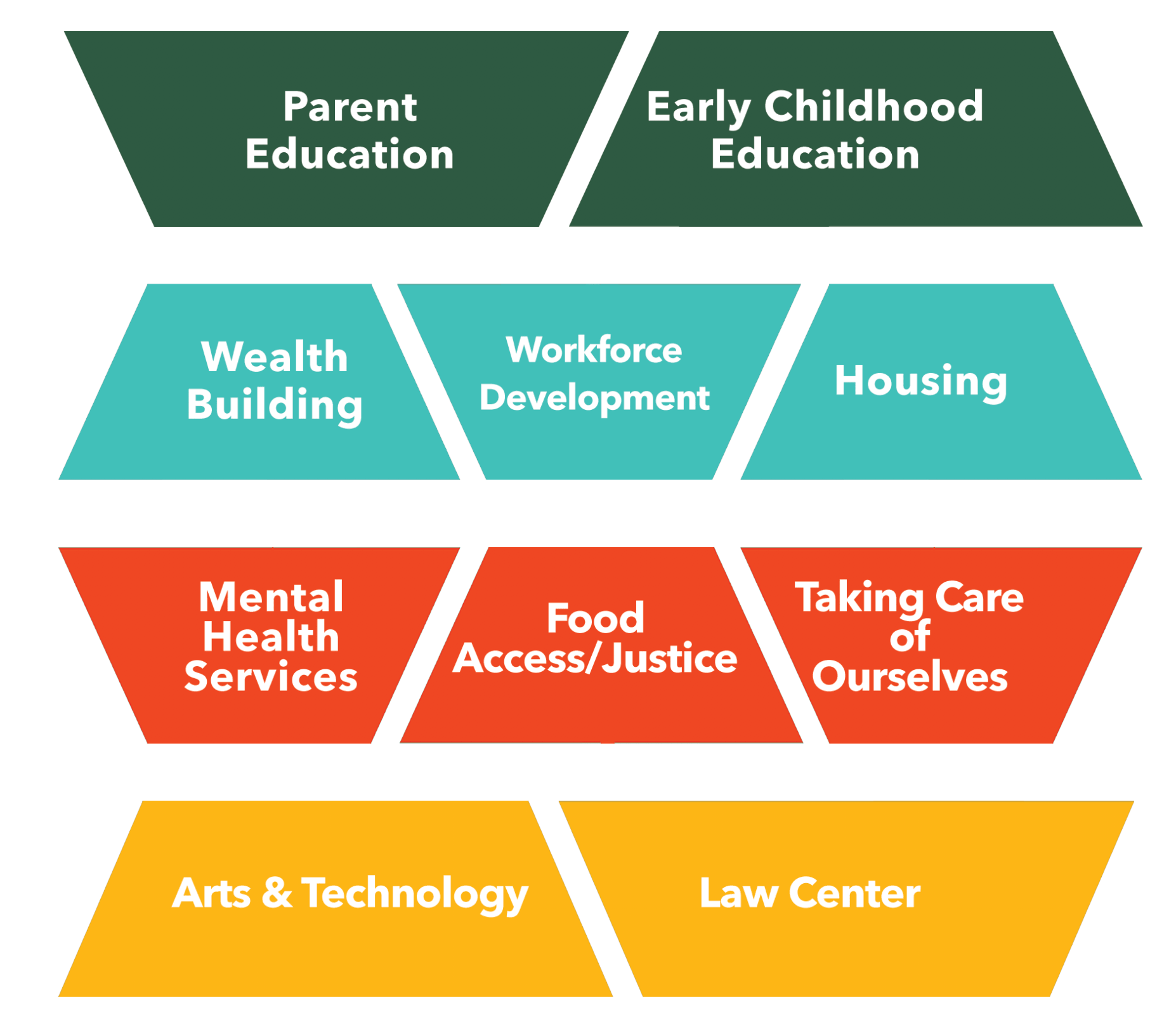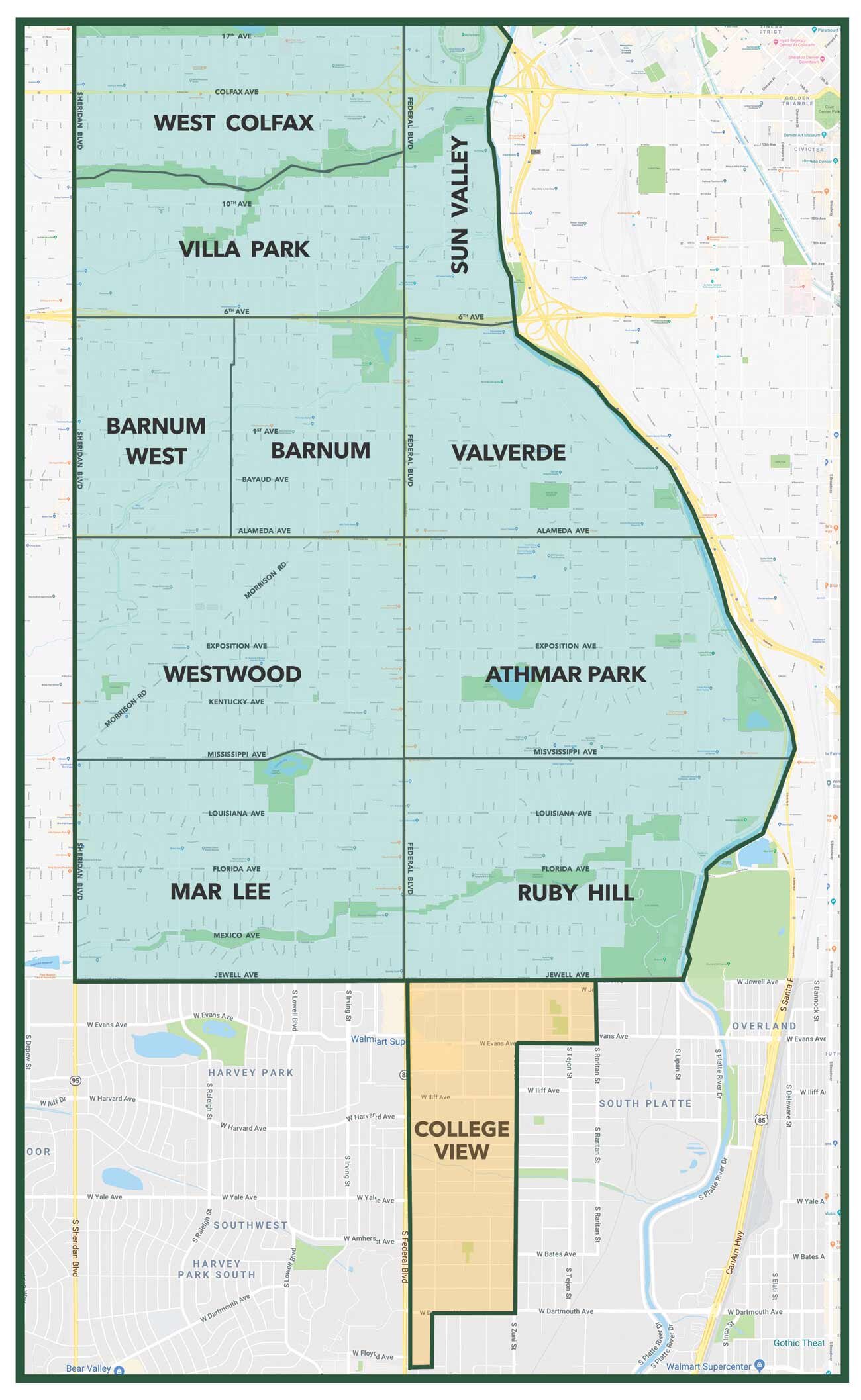
The Nature of Our Work
Since late 2017, we have met with hundreds of families, community leaders, funders, non-profits, schools, government officials and faith communities in Southwest Denver. Below is a look at the themes that have emerged.
Themes
- Distrust of government
- Distrust of large organizations
- Neighborhood neglect
- Lack of community investment
- Lack of capacity building
- Navigation, public services
Wishes
- Community Activities
- Safety
- Gardens
- Connection
- Healthy
Years of Deep Listening
We pulled together a wide variety of neighborhood-level demographics and indicators of well-being—from race to income, birth rates to school performance. We mapped assets and read other groups’ reports. Then, we followed the curiosity of workgroup members, investigating crime rates, immigration enforcement activity, addiction treatment, homelessness initiatives, child welfare cases, and more. Over and over, we asked: “who else should we talk to?” “what else would be helpful to know?” “what else should we be thinking about?”
We developed interview guides to be deployed in conversations with providers and families, to uncover the perceived strengths and needs of Southwest Denver families with young children.
With the support of two community consultants, we conversed with providers and family members, in English, Spanish, Vietnamese, and Arabic.
Research unveiled a group of neighborhoods with a rich history— characterized by marginalization and tenacity. Southwest Denver is home to many immigrants and refugees who speak a myriad of languages. Each neighborhood faces gentrification or risk of gentrification, and their children have less opportunity than their peers in other parts of the city.


